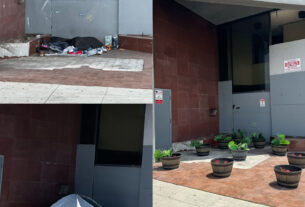Israelis have gone to polling stations for Knesset elections five times in less than four years – a situation that most voters have felt causes great annoyance, anger and anxiety. Now American researchers at the University of Nebraska-Lindon have proven the toll of polarized politics on mental and physical health and that political anxiety crescendos before a major election.
Political scientist Prof. Kevin Smith led the study that he said was the first to examine anxiety tethered to a specific political event – the 2020 American presidential election, touted by both sides as the “most consequential in recent US history.”
He and his team published their findings in the Journal of Elections Public Opinion and Parties under the title “On pins and needles: anxiety, politics and the 2020 US Presidential election.”
What did they find?
Using a two-wave panel survey of political anxiety administered two weeks before and two weeks following the 2020 election, the study found that Americans were more anxious before the election, as researchers had hypothesized. Following the election, it was those who specifically voted for Donald Trump, as well as conservatives and African Americans who reported lower levels of anxiety.
“We found a lot of political anxiety right before the election and that the election was an intervention to treat some of that anxiety — how much, we don’t know, because of some of the craziness around the election,” said Smith. “But pretty much across the board, political anxiety went down following the election, and it went down surprisingly in some groups. The most anxious group, before and after the election, were those more politically engaged or attentive to politics, whose anxiety levels rose after the election.”
The researchers noted that the 2020 election was anything but normal. A record number of votes were cast, and it was the most expensive election on record, topping $6.6 billion spent in the contest between President Joe Biden and former President Donald Trump. Voters were also contending with a pandemic, and conspiracy theories abounded about election fraud.
Despite that, Smith said the study establishes a method for researchers to measure political anxiety going forward. “Our measure appears to be valid,” he said. “We’re looking at 2024 and hoping we can replicate some of this to possibly parse out some of those effects.”
“Would an election in a Republican- or Democratic-leaning state, where the outcome seems pre-determined, be less anxiety-inducing than in a battleground state, where a ton of money from outside special interests is coming in and it’s dominating the news cycle?” Smith said. “I don’t know, but it is a relevant question, because with state and local elections, you’d be going through this cycle each year.
“Essentially, politics may be serving as a primary source of stress – and specifically anxiety in an environment that would be more or less constant. And what do we do about that?” Smith said. “There’s not a large group of us looking at this yet, but hopefully, that number grows.”




